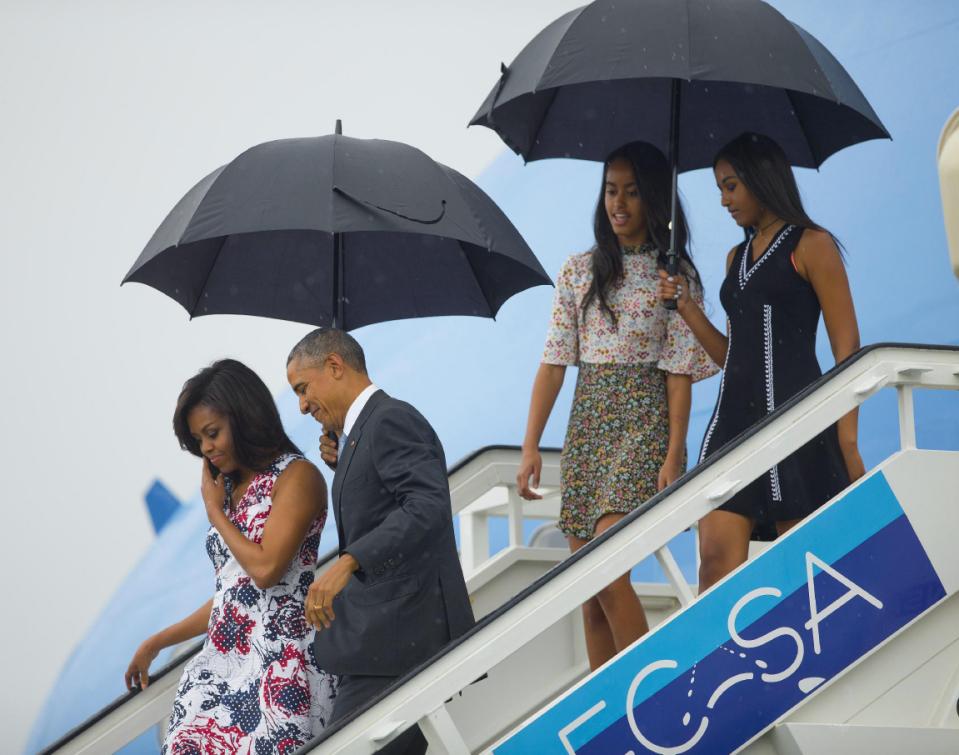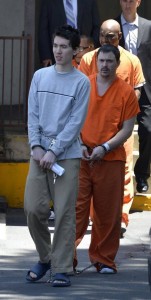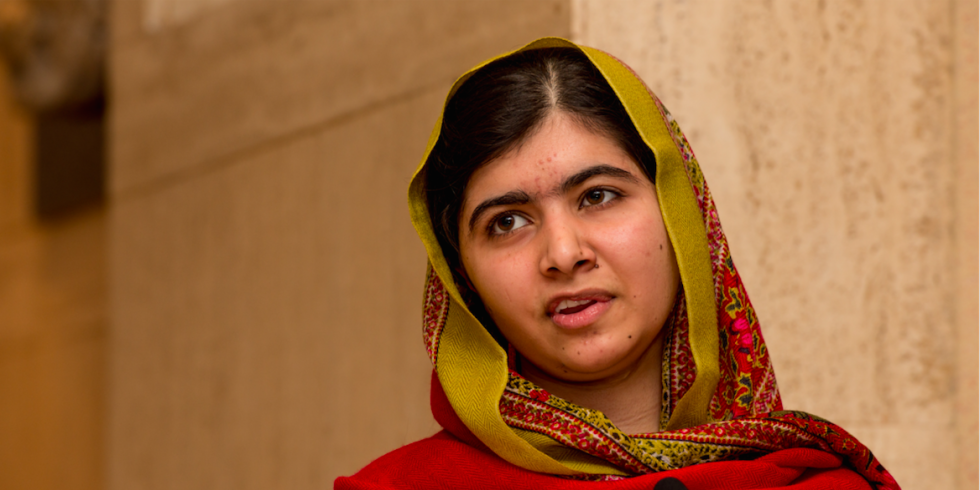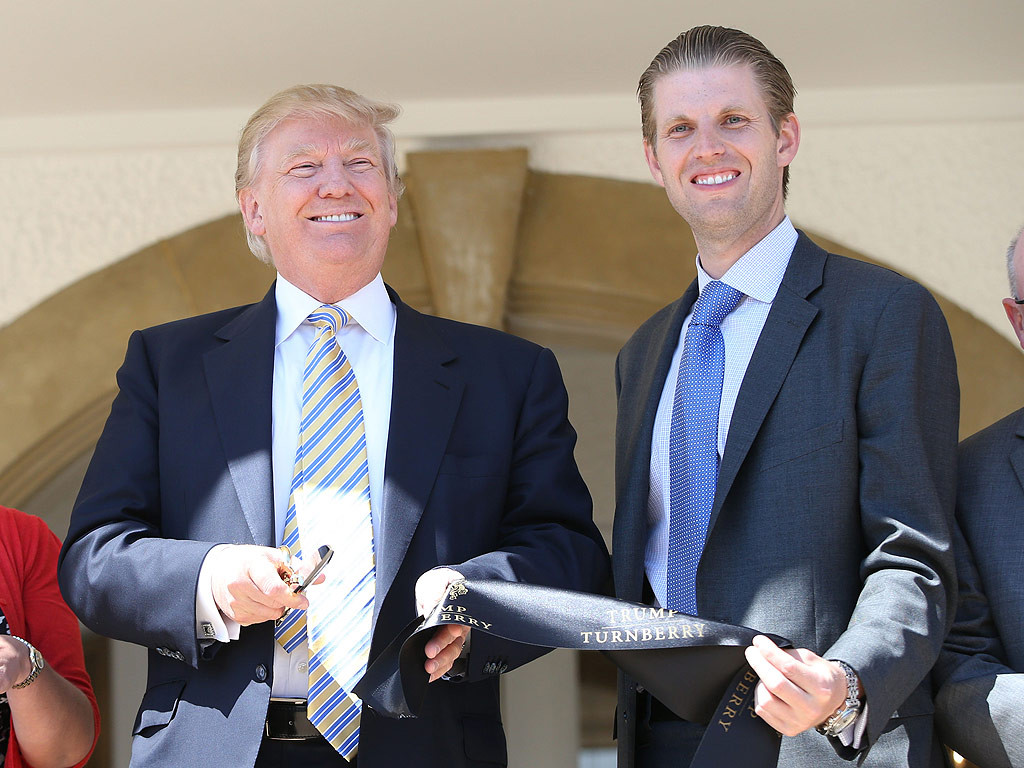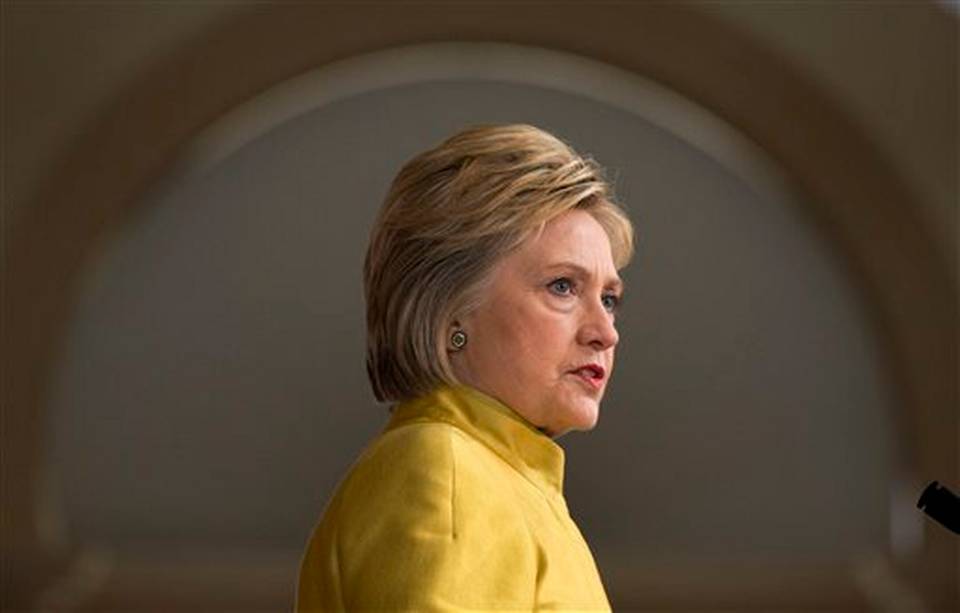
The Associated Press | WASHINGTON
The Latest on the presidential election (all times EDT):
10 p.m.
Texas Sen. Ted Cruz says he waited until January to begin criticizing Republican rival Donald Trump because he didn’t want to become “roadkill” like other candidates who had challenged the front-runner.
Cruz made the comment Wednesday during a forum hosted by a conservative talk radio host near Milwaukee. It marked Cruz’s first campaign stop in Wisconsin, which holds its primary April 5.
Cruz was asked about a previous statement he made calling Trump “terrific.” Cruz responded by noting that his campaign has had a plan since launching a year ago, and said he needed to build his base of support first and get his record out before drawing contrasts with Trump.
Now Cruz is looking to Wisconsin, with its 42 delegates, as a place to slow Trump’s momentum.
—
5 p.m.
Ohio Gov. John Kasich says there is “zero chance” he will drop out of the race before Wisconsin’s primary on April 5.
Kasich told voters during a campaign stop Wednesday outside Milwaukee that he’s not dropping out of the race and he’s “going to be nobody’s vice president.”
He later told reporters that he was going to do “fine” in Wisconsin, “but I’m not going to predict we’re going to win here.”
Instead, Kasich is looking ahead to states in the East where he says Texas Sen. Ted Cruz can’t beat Donald Trump.
Kasich says he’s not remaining in the race to stop Donald Trump, but if he drops out Trump will win. Kasich says he’s pinning his hopes on securing the nomination at a contested Republican Party convention this summer in Cleveland.
—
4:20 p.m.
Hillary Clinton is maintaining a 300-delegate lead over Bernie Sanders after Tuesday night’s contests.
Sanders won Idaho and Utah, but his net gains were more modest after Clinton won Arizona.
For the night, Sanders won at least 73 delegates while Clinton picked up at least 55. Three delegates from Tuesday remain to be allocated, pending final vote tallies.
To date, Clinton has a lead of 1,223 to 920 over Sanders based on primaries and caucuses.
If Sanders hopes to overtake her, he must win 58 percent of the remaining delegates. So far, he’s only winning 43 percent.
Clinton holds an even wider lead when including superdelegates, or party officials who can back any candidate they wish.
With them, she has 1,690 to Sanders’ 946. It takes 2,383 to win.
—
3:45 p.m.
Hillary Clinton is pledging to defeat the Islamic State group and arguing her opponents are not up to the task.
She spoke at Stanford University as the Brussels attacks a day earlier reverberate in the U.S. presidential campaign.
The Democratic front-runner says the U.S. must adapt to a sophisticated adversary yet Republican presidential contenders offer only bluster that alienates U.S. allies.
And she’s stressing the importance of NATO in light of Donald Trump’s comments that the U.S. should rethink its involvement with the alliance.
Clinton says if Trump gets his way, “it will be like Christmas in the Kremlin.”
And she took issue with Ted Cruz’s talk about carpet-bombing IS.
She says “slogans aren’t a strategy” and “loose cannons tend to misfire.”
—
2:30 p.m.
Ted Cruz is trying to link Donald Trump to the “disasters of liberal Democrats” who have governed New York.
Cruz, speaking in Manhattan, says Trump supported the state’s Democratic politicians, including Gov. Andrew Cuomo, former Gov. Eliot Spitzer, ex-congressman Anthony Weiner and Democratic presidential front-runner Hillary Clinton.
He says Trump’s donations to Democrats raise questions about his judgment. For his part, Trump says he gave money to people in both parties because that’s what a businessman needs to do.
Cruz has spent two days in Manhattan doing television interviews, meeting donors and speaking to Republicans. He’s sidestepped questions about his previous criticism of “New York values.” He says he hopes to compete effectively in the New York primary next month.
—
1:10 p.m.
Ted Cruz is saying that Donald Trump’s tweet that threatened to “spill the beans” on his wife was “gutter politics” and “reached a new low.”
Cruz, in New York City, said Trump tries to “attack and bully people” but should know that spouses and children are off-limits.
Trump issued a vague threat on Twitter on Tuesday to disclose something about Heidi Cruz. This, in response to an ad made by an outside political group that features a provocative photo of Trump’s wife, Melania, when she was a model and before they were married.
Trump misidentified the Cruz campaign as the source of the ad.
The Texas senator says Trump launches personal attacks when he wants to change the subject, suggesting Trump wanted to divert attention from Utah, where he lost to Cruz on Tuesday night.
—
12:40 p.m.
Donald Trump won 59 percent of the delegates that were up for grabs in Tuesday’s contests. If he kept up that pace, he’d clinch the Republican nomination for president before the party’s national convention this summer.
Trump needs to win 54 percent of the remaining delegates to reach 1,237. That’s how many it takes to secure the GOP nomination.
Trump’s closest rival, Texas Sen. Ted Cruz, would need to win 83 percent of the remaining delegates, a nearly impossible task.
The next GOP primary is April 5 in Wisconsin, with 42 delegates at stake. Wisconsin awards 18 delegates to the statewide winner and three delegates to the winner in each congressional district. Several coming contests award delegates in a similar manner, enabling a successful candidate to win most or all of the delegates at stake.
The AP delegate count:
Trump: 739
Cruz: 465
John Kasich: 143
—
12:30 p.m.
Ted Cruz’s wife had sharp words for Donald Trump after he warned he’d “spill the beans” on her in a vague tweet.
The tweet came after an anti-Trump group that’s not controlled by Cruz ran an ad in Utah featuring a provocative picture of Trump’s wife, Melania, from a photo shoot that ran in British GQ magazine more than a decade ago. She was then a model.
Heidi Cruz opened a campaign office for her husband in suburban Milwaukee on Wednesday. She said: “the things that Donald Trump says are not based in reality.”
Trump misidentified Cruz as the source of the ad.
—
Noon
Wisconsin Gov. Scott Walker says he hasn’t decided whether he’ll endorse anyone for the GOP presidential nomination. But he says only Ted Cruz can beat Donald Trump.
Walker dropped out of the Republican presidential race after a 70-day campaign last year. He says in an interview broadcast Wednesday on WTMJ radio that he’ll make a decision next week about a possible endorsement. The Wisconsin primary is April 5.
Walker says Cruz and Ohio Gov. John Kasich fit more with his strategy than Trump. But only Trump and Cruz have a statistical chance to win the nomination, says the governor.
—
10:15 a.m.
Hillary Clinton is closing in on collecting three-quarters of the delegates needed to clinch the Democratic presidential nomination.
Bernie Sanders netted more than a dozen delegates after splitting the latest contests with Clinton. But he still trails significantly.
Three states held Democratic contests with a total of 131 delegates at stake.
Sanders picked up at least 67, having won big in Idaho and Utah.
Clinton will gain at least 51 after a victory in Arizona.
Thirteen delegates remain to be allocated from Tuesday, pending final vote tallies.
Still, Clinton continues to sustain a big lead overall.
Based on primaries and caucuses to date, she leads Sanders 1,214 to 911.
Clinton’s lead is even bigger when including superdelegates, or party officials who can back any candidate they wish.
She now has 1,681, or 71 percent of the number needed to clinch the nomination. Sanders has 937.
—
10 a.m.
Donald Trump took the top prize in the latest Republican presidential races: all 58 delegates in Arizona’s primary.
Texas Sen. Ted Cruz won big in Utah, and he’ll get all 40 of the state’s delegates to the Republican National Convention. But he has a very limited path to clinch the nomination before the party’s convention this summer.
The third contender still fighting for the nomination, Ohio Gov. John Kasich, was shut out for the night.
Here’s the latest AP delegate count:
Trump: 739
Cruz: 465
Kasich: 143
Needed to win the nomination: 1,237
—
9:45 a.m.
Texas Sen. Ted Cruz has won the endorsement of the political arm of the Club for Growth. The conservative group has spent millions in television ads to stop Donald Trump.
Club for Growth President David McIntosh says Cruz is the best free-market, limited-government candidate in the presidential race.
McIntosh says there’s a “vast gulf between the two leading Republican candidates on matters of economic liberty.” Cruz would shrink the federal government, McIntosh says, while Trump “would seek to remake government in his desired image.”
Former GOP candidate Jeb Bush also is backing Cruz.
But Trump’s substantial lead in delegates will be hard for the Texas senator to catch in the remaining primaries.
—
7:32 a.m.
Ted Cruz is suggesting he’d find a place for Republican rival John Kasich in his future administration if Kasich agrees to drop out of the presidential race and supports him.
Cruz noted that it’s mathematically impossible for Kasich to reach the 1,237 delegates needed to secure the GOP nomination. So the only role Kasich is playing now is that of a “spoiler” by taking votes that could have gone to Cruz. And that is only serving to help front-runner Donald Trump, Cruz says.
In an interview Wednesday on CNN’s “New Day,” Cruz said of Kasich: “I think he’d be a tremendous addition to an administration.”
Cruz also praised his latest endorsement from Jeb Bush, saying it proved his candidacy has drawn broad support among Republicans.
—
7:10 a.m.
Jeb Bush says he’s endorsing Ted Cruz for president.
Bush tweeted Wednesday that “Ted is a consistent, principled conservative who has shown he can unite the party.”
He added on his Facebook page that Republicans “must overcome the divisiveness and vulgarity Donald Trump has brought into the political arena” or risk losing to Hillary Clinton.

